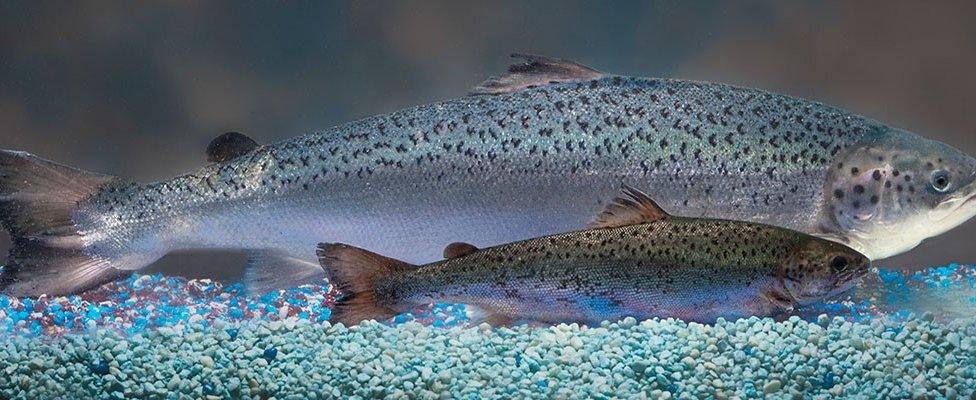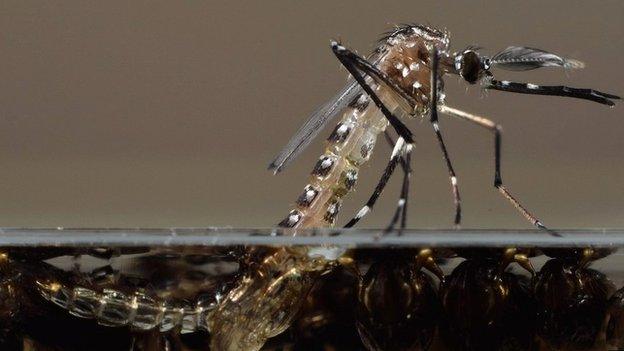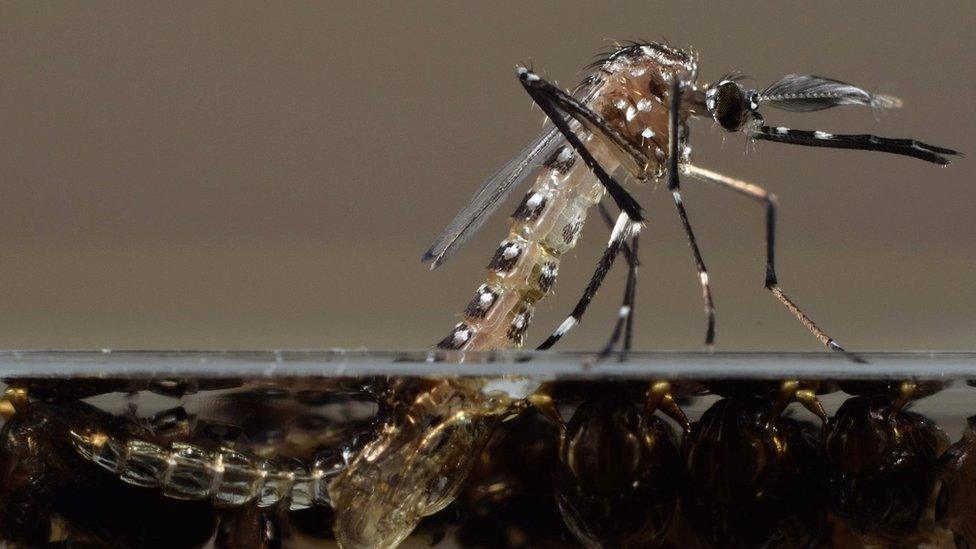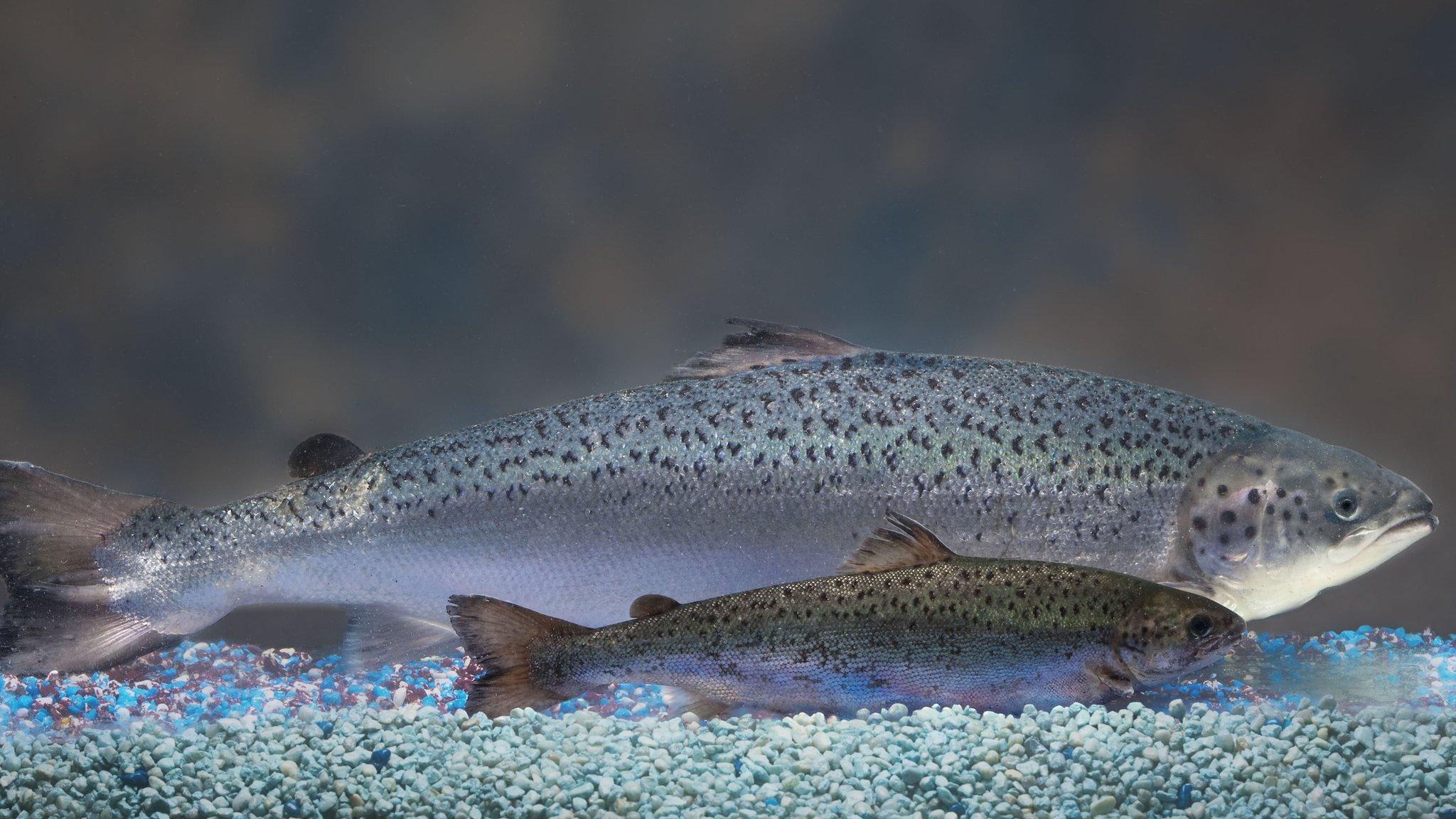US approves genetically modified salmon for food
- Published

US regulators have given the go-ahead to genetically modified salmon, making it the first GM animal destined for human consumption.
The Food and Drug Administration said it had given approval on the grounds that "food from the fish is safe to eat".
The biotech company behind the fish, AquaBounty, first submitted its application almost 20 years ago.
Opponents say consumers do not want to eat genetically engineered seafood.
They have also expressed concern that the salmon could pose risks to other fish if it were to escape into the environment.
Dr Bernadette Dunham of the FDA's Center for Veterinary Medicine said: "The FDA has thoroughly analysed and evaluated the data and information submitted by AquaBounty Technologies regarding AquAdvantage Salmon and determined that they have met the regulatory requirements for approval, including that food from the fish is safe to eat."
The FDA ruled that the salmon must be raised in tanks on land at only two facilities in Canada and Panama. It will not be bred or raised in the US.
Safety measures include producing fish that are sterile to prevent cross breeding with wild fish "in the highly unlikely event of an escape".
The transgenic salmon is a type of Atlantic salmon injected with a gene from Pacific Chinook salmon to make it grow faster.
'Game changer'
Dr Ron Stotish, chief executive of AquaBounty, said the salmon was "a game-changer that brings healthy and nutritious food to consumers in an environmentally responsible manner without damaging the ocean and other marine habitats".
He said the young reach adult size much quicker than conventional fish, making it feasible to raise salmon in tanks on land near urban areas.
However, it is unclear whether retailers will want to sell the salmon and whether the public will want to buy it.
Lisa Archer, food and technology programme director at Friends of the Earth, said despite the FDA's "flawed and irresponsible approval of the first genetically engineered animal for human consumption, it's clear that there is no place in the US market for genetically engineered salmon".
There are also uncertainties over how long it will take for the salmon to be produced in sufficient numbers for marketing.
Dr Alison Van Eenennaam, an animal geneticist at the University of California, Davis, said this process could take a couple of years.
"Legally it could appear on a food plate tomorrow in the US but you've got to grow your fish and get production in place," she said.
"We've had a very long wait to bring a genetically engineered animal to market."
Ecological concerns
Prof Helen Sang of the Roslin Institute at the University of Edinburgh said the approval by the FDA set a precedent.
"It's the first genetically engineered animal for food that's been approved anywhere in the world," she told BBC News.
"There's been a feeling that many companies have been waiting to see if the US will approve GM salmon before going ahead themselves."
However, Dr Joe Perry, former Chair of the European Food Safety Authority GMO Panel, said that if an application were made to raise GM salmon in Europe the risk assessment "would require considerably more data".
"There remain legitimate ecological concerns over the possible consequences if these GM salmon escape to the wild and reproduce, despite FDA assurances over containment and sterility, neither of which can be guaranteed," he said.
Follow Helen on HTwitter, external.

More from Science/Environment News
The use of genetically engineered animals could revolutionise areas of public health and agriculture, according to advocates. But is the world ready for modified mosquitoes and GM salmon?


- Published25 February 2015

- Published29 May 2013
